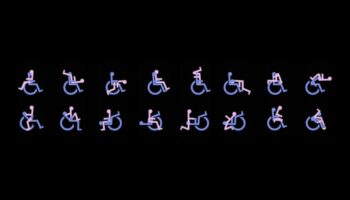What is a sex educator?
A sex educator is any person who helps others learn about sexuality. This could include sexual health and wellness, sexually transmitted infections, pleasure anatomy, reproductive anatomy, sex techniques, response, emotions, desires, and communication techniques.
Who is a sex educator?
Our first sex educators are usually our parents; they teach us in direct and indirect ways, like how they relate to their own bodies, the language they teach us about our anatomy, and the responses they have to childhood sexual behavior and questions.
Beyond our parents, other potential sex educators include primary school teachers, university professors, medical practitioners, clinics like Planned Parenthood, progressive sex shops, bloggers, podcasters, authors, speakers and even porn stars.
What does a sex educator do?
A sex educator simply inspires thoughts, conversations and actions. We listen actively, we answer questions, we help people understand which desires are normal and find resources to help people find other avenues to expand their knowledge base. Sometimes we do this through casual conversations, in classrooms, or by facilitating classes and workshops. Other times, we do it by writing blog posts, books, and articles. We can also inspire great sexuality conversations through media like podcasts, video, radio and television.
Can I be a sex educator?
Yes. You already have the capacity to be a sex educator just by modeling healthy behavior, being a good parent, and inspiring honest conversations with the people you encounter in life.
To become a better sex educator I recommend you read. There are amazing books and blogs in the world. Search out materials that spark your interests. You can also seek out classes and workshops in your city.
If you want to do sex education as a career, you will need to commit more time and energy to growth. There are many career paths available to you as a sex educator. I recommend you start by looking at the career paths of other sex educators that inspire you. Define for yourself how and where you would like to teach. Some examples might include:
- Youth Sex Education: In high schools, community centers, and youth drop-in centers, this involves teaching students directly and/or advising peer education programs.
- Public Health: This largely involves sexually transmitted infection (STI) awareness and prevention.
- Counseling or Therapy: Working with social services or in private practice to help individuals and couples.
- Adult Education: Leading workshops in community centers and adult shops. Writing blogs and books targeted for adults.
- Creative Arts: Creating sex education and/or erotic projects like event, books, stage or television.
- Academic Teaching or Research: Teaching at the college level.
Do I need a degree to be a sex educator?
Sometimes. It depends on the career path you choose, but a degree can certainly help you to expand your knowledge base and gain the confidence of those who come to you for help.
Some people choose to get a Ph.D. in sexology, while others choose degrees in social work, community public health, or psychology.
How do I know if someone is a good sex educator?
There are many great sex educators in the world. Some are very well known and others work very quietly. Start by reading their bios if they have one online and get to know their work. From there, I always recommend that you look at the person’s intent. Ask yourself (or them) why they are teaching sex. Look for sex educators who are generous, who are in service to their audience rather than to themselves. Do you relate to the person for other reasons? Perhaps they come from a similar culture, class, or background as you and therefore you will find commonality with them.
In the end I stress that sex education, whether formally or informally, is a practice. A good sex educator never assumes they know everything. Instead they make a commitment to keep an open mind and always seek growth.


